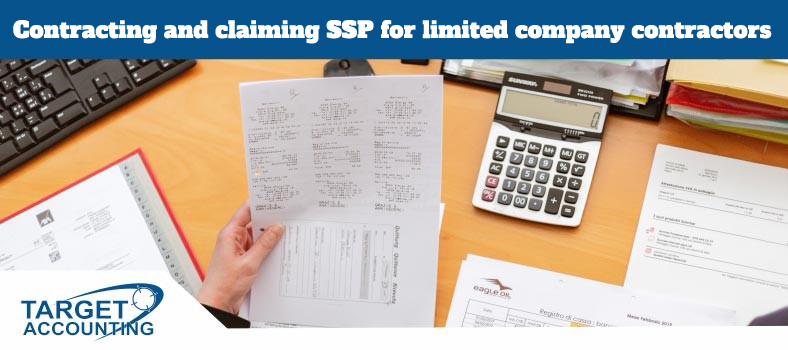
In the pandemic times we have been through, we have faced one reality. Anyone and everyone is prone to be ill or fall sick at some time or other. As a contractor for employment in a limited company, one must be aware that one may have to report sick at some point of the contract period. At such a time, one must be aware of how Statutory Sick Pay, SSP for short, works.
A point before we begin. The statutory sick pay rebate scheme was closed on 17 March 2022. Post this date, all rules and policies relating to SSP are as per pre-pandemic legislations.
What is SSP?
SSP is the statutory sick pay claim for a worker. It is one of the workers’ rights as set out by Her Majesty Revenue and Customs (HMRC). HMRC defines when a person can be classified as a worker. If a person is in a contract as per the HMRC policies and can be classified as a worker, he or she can claim SSP.
As per this, one can get £99.35 per week (previously £96.35 per week) as SSP if one is off work due to sickness. Claim period is 28 weeks. This is the statutory minimum that must be paid by a company. It can be more if the employment terms of the contract with the company entitles one to the sick pay scheme of that company.
Eligibility for claiming SSP
To be eligible to claim SSP, one must fulfil some criteria
- One must be classified as an employee or worker as per HMRC guidelines. One must have an employment contract with the company.
- One must have done some work for the company.
- One must have earned an average of at least £123 per week. The average period is at least 8 weeks before the first day of being off as sick.
- One must have been ill for at least 4 days in a row (including non-working days). Out of these, the first three days are termed as waiting days. One is not eligible to receive SSP during the waiting days. SSP can be claimed from the fourth day. There is an exception to the three-day waiting period. In the case of linked periods of illness, one gets paid for the three days in subsequent periods of illness. For linking, the subsequent periods of illness must be at least 4 days or more each and must be 8 weeks or less apart.
- One must give notice and proof of illness when required. A notice of illness must be provided to the company. The employment contract of each company sets a period of notice. If the contract does not define such a period, the notice of illness is 7 days. A company need not pay for the delay in notifying. For example, if the employment contract defines the notice of 5 days and one gives the notice on the 7th day, the company need not pay for the 2 days of delay in giving the notice. A sick note or a fit note from a doctor or a hospital may be required to be submitted in cases where the off days due to sickness is more than 7 days.
Exceptions
A Company is not required to pay SSP in the following cases
- One has already received SSP for 28 weeks.
- One is getting statutory maternity pay.
- One is having a continuous series of linked periods lasting for 3 years or more.
Conclusion
Statutory sick pay ensures that one gets paid during an absence from work due to sickness. The payment is £99.35 per week for a maximum period of 28 weeks. We have looked at how SSP works, the eligibility, and the exceptions.
At the same time, it is also important to check the terms of the contract with the limited company. This will ensure that one follows the guidelines required to be eligible for claiming SSP. Anyone may be off work due to sickness.
However, there is a relief during such a time. With SSP in place, off-work does not end up as off pay. One can still be paid the statutory minimum.

